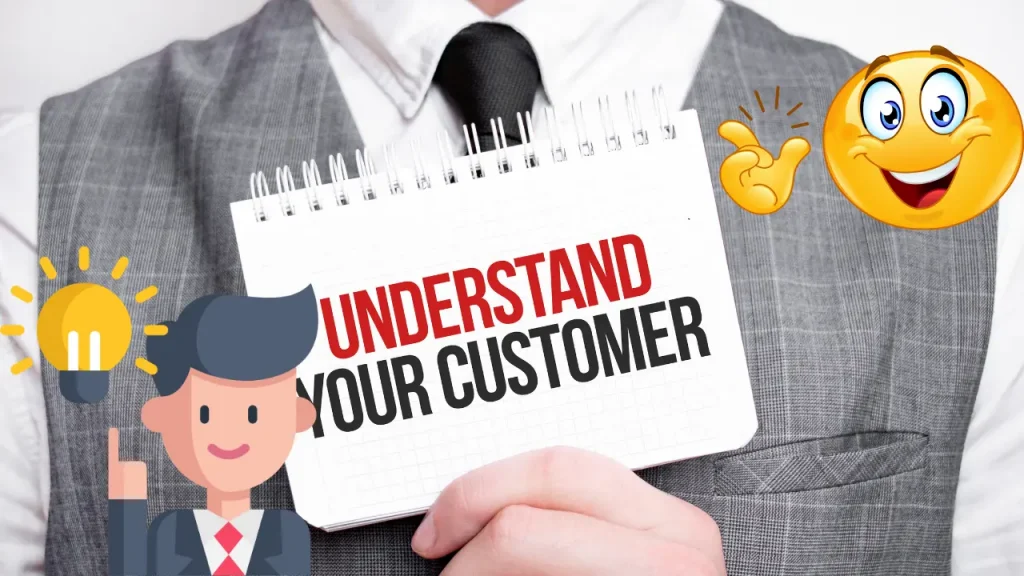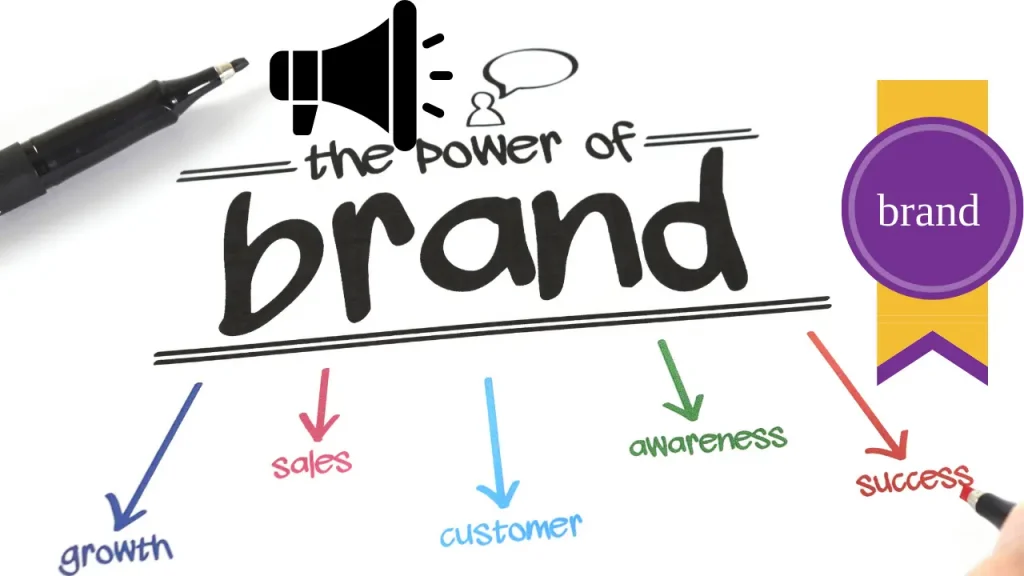Table of Contents
Introduction
So, you’ve heard the buzz about industry based marketing, right? It’s not just a fancy term; it’s a game-changer for businesses, especially smaller ones. Imagine tailoring your marketing message so perfectly to your industry that it feels like you’re speaking directly to your customers’ souls. That’s the power of industry based marketing.
In this guide, we’ll break down what industry-based marketing is, why it matters for your small business, and how to make it work for you. We’ll cover everything from understanding your industry inside and out to creating killer content that resonates with your target audience. Let’s dive in!
Understanding Your Industry: The Cornerstone of Success

Okay, let’s get real. To nail industry-based marketing, you need to know your stuff inside and out. It’s like knowing your audience better than their favorite Netflix show. Understanding your industry isn’t just about knowing what you sell; it’s about grasping the entire ecosystem.
Start by diving deep into your industry. Don’t just skim the surface; get your hands dirty. Research, research, research! Figure out who your competitors are, what they’re doing, and where they’re falling short. It’s like studying your enemies to outsmart them in a chess game.
Next, get to know your customers like the back of your hand. Create detailed buyer personas. These aren’t just made-up people; they should feel so real, you could buy them a coffee. Think about their pain points, their goals, and what keeps them up at night. If you were in the food industry, you’d know if they’re health-conscious or prefer comfort food. In law, you’d understand their legal worries. And in coaching, you’d know their biggest challenges.
Remember, knowing your industry isn’t just about bragging rights. It’s the foundation for building a marketing strategy that truly connects with your audience.
Building Your Industry Brand: Stand Out from the Crowd

Okay, so you know your industry like the back of your hand. Now it’s time to make your business stand out. Think of your industry as a crowded party; you need to be the life of it, not just another face in the crowd.
Creating a strong industry brand is like building a castle. You need a solid foundation of expertise. Share your knowledge, offer insights, and become a trusted advisor. This is where thought leadership comes in. Don’t just talk about your products or services; discuss industry trends, challenges, and solutions. It’s like being the wise old owl on the perch, offering valuable advice.
Content is king, and in your industry, you’re the royalty. Create content that informs, educates, and inspires. Blog posts, whitepapers, webinars – use every tool in your arsenal. But remember, it’s not just about quantity; it’s about quality. Your content should be so good, people will be sharing it left and right.
Finally, network like a pro. Build relationships with industry influencers. These people are the keyholders to your target audience. Collaborate, share knowledge, and support each other. Think of it as building a powerful alliance.
Riding the Wave: Leveraging Industry Trends

Staying ahead of the curve is like surfing – you need to catch the right wave at the right time. In the world of business, those waves are industry trends. It’s about spotting what’s hot, understanding why it’s hot, and then figuring out how to make it work for you.
Keep your ear to the ground. Subscribe to industry publications, follow influencers, and attend conferences. It’s like being a detective, always on the lookout for clues about what’s next. Once you spot a trend, don’t just sit back and watch; dive in headfirst.
Now, here’s the tricky part: don’t just jump on any trend. Make sure it aligns with your business goals and target audience. For example, if you’re in the fitness industry and there’s a boom in home workouts, create content around home gym setups or online fitness challenges. It’s like adding fuel to the fire.
Remember, trends are like passing clouds. They come and go. The key is to be adaptable and ready to pivot when needed. Stay ahead of the game, and you’ll be the one everyone’s watching.
Case Studies: Industry-Based Marketing Success Stories

B2B SaaS Success: $1B Company Case Study
A $1 billion SaaS company in the HR and payroll sector partnered with Insights ABM to achieve their 20% annual growth target[3]. The company faced challenges with resource allocation and lacked an account-centric framework.
Key strategies:
– Implemented a tailored account-based marketing (ABM) approach
– Optimized tech stack for data-driven decisions
– Revamped media mix for targeted outreach
– Provided ABM sales playbooks
Results:
– 20% increase in appointments
– 125% surge in qualified leads
– 10% jump in valid leads
– Reduced time to set appointments
Takeaway: Adopting a comprehensive ABM strategy can significantly improve lead generation and operational efficiency for B2B companies.
Tech Consulting Firm: Digital Transformation
A global tech consulting firm collaborated with Insights ABM to adapt to the digital landscape and lead conversations in their industry.
Key strategies:
– Developed integrated campaign planning
– Focused on audience development
– Implemented content syndication
– Created specialized social media marketing campaigns
Results:
– Engaged over 400 high-value accounts
– Achieved a 20% opt-in rate
– Increased engagement and conversions, particularly on LinkedIn
Takeaway: A multi-faceted ABM approach can help businesses effectively target and engage high-value accounts in the digital space.
Adobe: Named Account Marketing
Adobe implemented a “named account marketing” strategy to increase engagement with enterprise-level prospects.
Key strategies:
– Created custom landing pages for specific accounts
– Generated tailored content addressing unique needs
Results:
– 19% increase in cross-selling and upsell opportunities
– Quadrupled website engagement
– Increased number of closed deals
Takeaway: Hyper-personalization in marketing efforts can lead to significant improvements in customer engagement and sales opportunities.
Mindtickle: Intelligent Personalization
Mindtickle, a sales readiness platform, focused on enhancing their ABM strategy.
Key strategies:
– Identified ideal customers
– Tracked and measured results for continuous improvement
– Implemented intelligent personalization beyond basic information
Results:
– Improved engagement rates
– Increased conversion rates
Takeaway: Combining customer identification, data-driven iteration, and intelligent personalization can significantly enhance ABM effectiveness.
Key Takeaways for Small Businesses
- Adopt an account-centric approach: Focus on identifying and targeting high-value accounts for more efficient resource allocation.
- Leverage data and technology: Optimize your tech stack to make data-driven decisions and improve campaign effectiveness.
- Personalize your marketing efforts: Create tailored content and experiences for specific accounts or industries to increase engagement. Personaliszation is especially important for freelancers.
- Align sales and marketing teams: Ensure collaboration between departments for a cohesive ABM strategy.
- Diversify marketing channels: Utilize a mix of tactics, including email, social media, content marketing, and events, to reach your target audience.
- Continuously measure and iterate: Track your results and be prepared to adjust your strategies based on performance data.
- Focus on customer identification: Invest time in understanding your ideal customer profile to target the right accounts.
- Implement intelligent personalization: Go beyond basic information to create truly personalized experiences for your target accounts.
By applying these lessons from successful industry based marketing campaigns, small businesses can enhance their marketing effectiveness and drive growth.
Challenges and Solutions: Navigating the Industry Waters

Let’s talk about the bumps in the road. Industry-based marketing isn’t always a smooth ride for small businesses. Limited resources, fierce competition, and staying ahead of the curve can feel like trying to juggle chainsaws.
One big challenge is standing out in a crowded marketplace. With everyone claiming to be an industry expert, it’s tough to get noticed. This is where creativity and consistency come in. Don’t be afraid to think outside the box. Maybe you can offer a unique perspective, or create shareable content that really grabs attention.
Another hurdle is measuring your return on investment (ROI). How do you know if your industry-based marketing efforts are actually paying off? This is where analytics come in handy. Track your key performance indicators (KPIs) closely. See what’s working and what’s not. It’s like having a financial advisor for your marketing strategy.
And let’s not forget about staying updated. Industries are always evolving, and if you blink, you might miss the next big thing. It’s like trying to catch a speeding train. You need to be agile and ready to adapt.
Remember, it’s okay to stumble sometimes. The important thing is to learn from your mistakes and keep moving forward.
Wrapping It Up in Conclusion: Your Industry-Based Marketing Blueprint
So, there you have it – industry-based marketing isn’t just a buzzword; it’s a strategic game-changer for small businesses. By deeply understanding your industry, building a strong brand, and staying ahead of trends, you can position your business as a leader.
Remember, it’s a journey, not a sprint. There will be challenges along the way, but with persistence and the right strategies, you can overcome them.
Now, it’s time to roll up your sleeves and put these insights into action. Start by analyzing your current marketing efforts. Are you truly leveraging your industry? If not, it’s time to make some changes.
Remember, industry-based marketing isn’t just about selling products or services; it’s about building relationships and becoming a trusted advisor to your customers. By investing time and effort into this strategy, you’ll set your business up for long-term success.
So, are you ready to dominate your industry? Let’s get started!
FAQ: Industry-Based Marketing
What is Industry-Specific Marketing?
Industry-specific marketing is like putting on a tailored suit for your business. Instead of casting a wide net, you focus on a specific industry or sector. It’s about understanding the unique challenges, needs, and language of that group and crafting messages that resonate. Think of it as swapping a generic t-shirt for a sharp outfit that makes you stand out in a crowd.
Why is Industry-Specific Marketing Important?
Imagine trying to sell fishing gear to everyone, from grandmas to astronauts. Sounds absurd, right? Industry-specific marketing is about precision. Either you are an architect, online shop or barber, you need specific approach. By focusing on a specific industry, you can create more relevant and impactful messages. It’s like knowing your audience so well, you can anticipate their needs before they even realize it. This leads to higher engagement, better conversions, and stronger customer relationships.
Who Needs Industry-Specific Marketing?
While it can benefit any business, industry-specific marketing is especially crucial for:
- B2B companies: Targeting specific industries helps you understand their unique pain points and tailor solutions accordingly.
- Businesses with niche products or services: Focusing on specific industries ensures your offerings align with customer needs.
- Companies looking to expand into new markets: Understanding the nuances of a new industry is essential for success. Basically, if you want to make a bigger splash and build stronger connections with your customers, industry-specific marketing is your secret weapon.

0 Comments